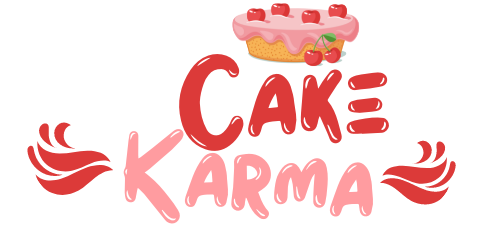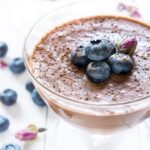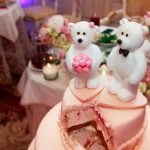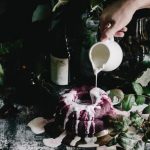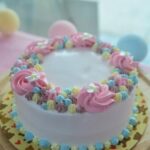Cake decoration is not just about creating visually appealing cakes; it is a craft that involves precision, creativity, and skill. For those with a passion for baking and artistry, pursuing a career as a cake decorator can be incredibly rewarding.
In this article, we will delve into the world of cake decorating, focusing on the essential skills and qualifications needed for this profession. We will also explore the typical responsibilities outlined in a cake decorator job description and the various techniques used in cake decoration.
Aspiring cake decorators need to possess a keen eye for detail, a steady hand, and a creative flair. The job requires not only technical skills but also an understanding of color theory, design principles, and trends in the industry. Additionally, effective communication skills are crucial when working with clients to bring their vision to life. This article aims to provide valuable insights into what it takes to excel in this dynamic and competitive field.
Whether you dream of working in a bustling bakery or starting your own cake decorating business, the opportunities for growth and success in this industry are vast. From mastering intricate piping techniques to experimenting with fondant and gum paste creations, being a cake decorator allows you to showcase your artistic talents on a unique canvas.
Stay tuned as we explore the integral components of a cake decorator job description and offer valuable tips for aspiring professionals looking to carve out a fulfilling career in this sweet and savory profession.
The Role of a Cake Decorator
A cake decorator plays a crucial role in the baking and pastry industry, bringing artistic creativity and skill to transforming simple cakes into stunning masterpieces. The primary responsibility of a cake decorator is to create visually appealing designs on cakes using various techniques and tools. Whether it’s for a birthday celebration, wedding reception, or any special occasion, cake decorators are the artists behind the scenes who turn ordinary desserts into extraordinary works of art.
In addition to decorating cakes, a cake decorator also needs to have knowledge of different types of icing, fillings, and flavor combinations to ensure that the final product not only looks beautiful but tastes delicious as well. Attention to detail is key in this profession, as precision is required when piping intricate designs or creating elaborate decorations by hand. Time management skills are also essential for cake decorators, especially when working under tight deadlines for multiple orders.
Furthermore, communication skills are important for cake decorators, as they often work closely with clients to understand their specific design preferences and bring their visions to life. Patience and perseverance are virtues that come in handy when faced with challenging projects or demanding customers. Overall, a successful cake decorator possesses a combination of artistic talent, technical skill, attention to detail, and excellent customer service to thrive in this creative field.
| Important Skills | Relevant Data |
|---|---|
| Artistic Talent | Essential for creating visually appealing designs on cakes |
| Attention to Detail | Required for precision in piping intricate designs and decorations |
| Customer Service | Needed for understanding client preferences and delivering quality service |
Essential Skills and Qualifications for Cake Decorators
Cake decorating is a skill that requires a combination of artistic talent, attention to detail, and the ability to work with precision. To excel in this profession, cake decorators must possess certain essential skills and qualifications. One crucial skill for cake decorators is creativity. Being able to envision and execute unique designs for cakes is what sets a talented decorator apart. Additionally, attention to detail is paramount in ensuring that every decoration is meticulously placed and flawlessly executed.
In addition to technical skills, cake decorators should also have good time-management abilities. The nature of the job often involves working on multiple projects with tight deadlines, so being able to prioritize tasks and work efficiently is key.
Equally important is having good communication skills, as decorators often need to collaborate with clients to understand their specific requests and preferences. Lastly, having a strong knowledge of food safety regulations and practices is essential to ensure that the decorated cakes are safe for consumption.
| Skills | Qualifications |
|---|---|
| Creativity | Culinary Arts Degree or Certification |
| Attention to Detail | Previous Experience in Baking or Cake Decorating |
| Time-Management | Knowledge of Food Safety Regulations |
| Communication Skills | Customer Service Experience |
Typical Responsibilities in a Cake Decorator Job Description
Designing and Decorating Cakes
One of the primary responsibilities in a cake decorator job description is designing and decorating cakes according to customer preferences or design specifications. This involves having a keen eye for detail, creativity, and the ability to bring ideas to life using different cake decorating techniques. A cake decorator must be skilled at creating visually appealing designs that match the occasion or theme of the event.
Color Mixing and Matching
Cake decorators are often tasked with mixing and matching colors to create custom shades for frosting, icing, and decorations. Understanding color theory is essential in achieving the desired hues and tones for a cake design. Cake decorators need to have a good sense of color combinations to ensure that the final product looks balanced, harmonious, and attractive.
Using Various Decorating Techniques
In addition to designing and coloring cakes, cake decorators use various decorating techniques to add texture, patterns, and unique elements to their creations. Some common techniques include piping, fondant sculpting, sugar crafting, airbrushing, and hand-painted details. Being proficient in these techniques allows cake decorators to create intricate designs and personalized touches on cakes for special occasions. Mastering these skills is crucial for success in a cake decorator job role.
Different Types of Cake Decorating Techniques
Cake decorating is a creative and fulfilling profession that allows individuals to showcase their artistic talents through edible masterpieces. In the world of cake decoration, there are various techniques and styles that can be utilized to transform a simple cake into a work of art. Whether it’s a classic birthday cake or an elaborate wedding cake, cake decorators use their skills to bring their clients’ visions to life.
Here are some different types of cake decorating techniques that are commonly used by cake decorators:
- Buttercream Decorating: Buttercream icing is a versatile and popular choice for cake decoration. With buttercream, decorators can create smooth finishes, intricate piping designs, and textured effects.
- Fondant Decoration: Fondant is a pliable sugar paste that can be rolled out and draped over cakes to create a smooth, flawless finish. Decorators can also use fondant to create three-dimensional decorations like flowers, ribbons, and figures.
- Royal Icing Techniques: Royal icing is a hard-drying icing made from egg whites and powdered sugar. Cake decorators use royal icing for delicate piping work, intricate lace designs, and detailed decorations.
Each of these techniques requires precision, patience, and creativity to achieve stunning results. Cake decorators may specialize in one particular technique or master a combination of styles to offer their clients a wide range of options for custom cakes.
Tools and Equipment Used by Cake Decorators
Some tools and equipment commonly used by cake decorators include:
- Piping Bags and Tips: Used for creating detailed designs with frosting or royal icing.
- Offset Spatula: Helps spread frosting smoothly on cakes for an even finish.
- Rolling Pins: Essential for rolling out fondant or gum paste for covering cakes or creating decorations.
- Sculpting Tools: Used for shaping and sculpting intricate details on cakes.
Tools and Equipment Used by Cake Decorators
Cake decorators rely on a variety of tools and equipment to bring their creative visions to life. These tools are essential in achieving the perfect decorations and designs on cakes. Here are some of the most commonly used tools and equipment in the cake decorating industry:
- Piping Bags: Piping bags are a staple tool for cake decorators as they allow for precise piping of icing and creating intricate designs on cakes.
- Piping Tips: These small metal tips are attached to piping bags to create different shapes and designs with icing, such as stars, rosettes, and petals.
- Offset Spatula: An offset spatula is used for spreading frosting evenly on cake layers, smoothing out surfaces, and creating clean edges on cakes.
In addition to these basic tools, cake decorators also use specialized equipment that helps them achieve more intricate decorations:
- Fondant Tools: Fondant is a popular choice for cake decorations, and decorators use tools like fondant smoothers, cutters, and embossers to create smooth finishes and intricate designs with fondant.
- Airbrush Kit: Cake decorators often use airbrush kits to add color gradients, shading effects, or intricate details to their cake designs.
- Turntable: A turntable is essential for rotating cakes while decorating, making it easier to spread frosting evenly or add detailed decorations from different angles.
By having the right tools and equipment at their disposal, cake decorators can enhance their creativity and produce stunning works of edible art that delight customers celebrating special occasions. Mastering the use of these tools is crucial for success in a competitive industry where attention to detail and precision are highly valued.
Challenges Faced by Cake Decorators in the Industry
As rewarding as a career in cake decoration can be, it comes with its fair share of challenges that professionals in the industry often encounter. These challenges require creative problem-solving skills, resilience, and the ability to adapt to changing situations. Understanding and being prepared to face these obstacles is essential for success in the field of cake decorating.
Time Management Pressure
One of the biggest challenges faced by cake decorators is managing time effectively. Balancing multiple orders, each with unique requirements, deadlines, and complexities, can be overwhelming. Meeting client expectations while ensuring the quality of work can be demanding. Cake decorators must learn to prioritize tasks, set realistic timelines, and optimize their workflow to deliver on time consistently.
Creativity Block
Another challenge that cake decorators frequently encounter is creativity block. Coming up with fresh ideas for designs that are innovative and appealing can be daunting, especially when facing tight deadlines or working on repetitive projects. Overcoming creative blocks requires staying inspired by exploring new trends, attending workshops or classes for skill development, and seeking inspiration from various sources such as nature, art, or fashion.
Perfectionism Struggles
Cake decorators often strive for perfection in their work to meet high standards and exceed client expectations. However, this pursuit of perfection can sometimes lead to anxiety, self-doubt, or feeling overwhelmed by tiny imperfections in their creations. Managing perfectionism involves striking a balance between aiming for excellence and understanding that mistakes are part of the learning process. Embracing imperfections as opportunities for growth can help alleviate some of the pressure faced by cake decorators in striving for flawless results.
Tips for Landing a Cake Decorator Job
In conclusion, becoming a cake decorator can be a fulfilling career choice for those with a passion for creativity and attention to detail. The job description of a cake decorator involves turning ordinary cakes into works of art, bringing joy to customers through visually appealing and delicious creations. To excel in this profession, individuals must possess essential skills such as artistic abilities, precision, patience, and the ability to work well under pressure.
When looking to land a cake decorator job, it is important to showcase your talents through a strong portfolio that demonstrates your proficiency in various cake decorating techniques. Additionally, gaining experience through internships or apprenticeships can provide valuable hands-on training and mentorship from seasoned professionals in the industry.
Networking with other cake decorators, attending industry events, and staying up-to-date on the latest trends in cake decoration can also help increase your chances of securing a job in this competitive field.
Ultimately, landing a cake decorator job requires dedication, hard work, and a genuine love for creating edible masterpieces. By honing your skills, building a strong professional network, and staying inspired by new ideas and techniques, you can position yourself as a desirable candidate for any cake decorating opportunity that comes your way. Whether working in a bakery, catering company, or starting your own business, the possibilities are endless for those who pursue their passion for cake decoration.
Frequently Asked Questions
What Are the Responsibilities of a Cake Decorator?
As a cake decorator, the main responsibilities involve creating visually appealing designs on cakes using various techniques like icing, fondant, and decorative elements. This includes interpreting client requests, selecting appropriate tools and materials, and ensuring the final product meets quality standards.
How Do You Describe a Cake Decorator on a Resume?
When describing a cake decorator on a resume, it is important to highlight skills such as artistic creativity, attention to detail, time management, and teamwork. Mention any relevant experience in baking or pastry arts, as well as proficiency with different decorating methods like piping, sculpting, and airbrushing.
What Is the Job Description of a Decorator?
A decorator’s job description typically includes tasks related to enhancing the aesthetic appeal of a space or object. This can involve selecting color schemes, arranging furniture or decor pieces, coordinating with clients to understand their preferences, and executing design plans effectively. Attention to detail and creativity are essential traits for success in this role.

Welcome to our cake decorating blog! My name is Destiny Flores, and I am the proud owner of a cake decorating business named Cake Karma. Our mission is to provide delicious, beautiful cakes for all occasions. We specialize in creating custom cakes that are tailored specifically to each customer’s individual needs and tastes.
